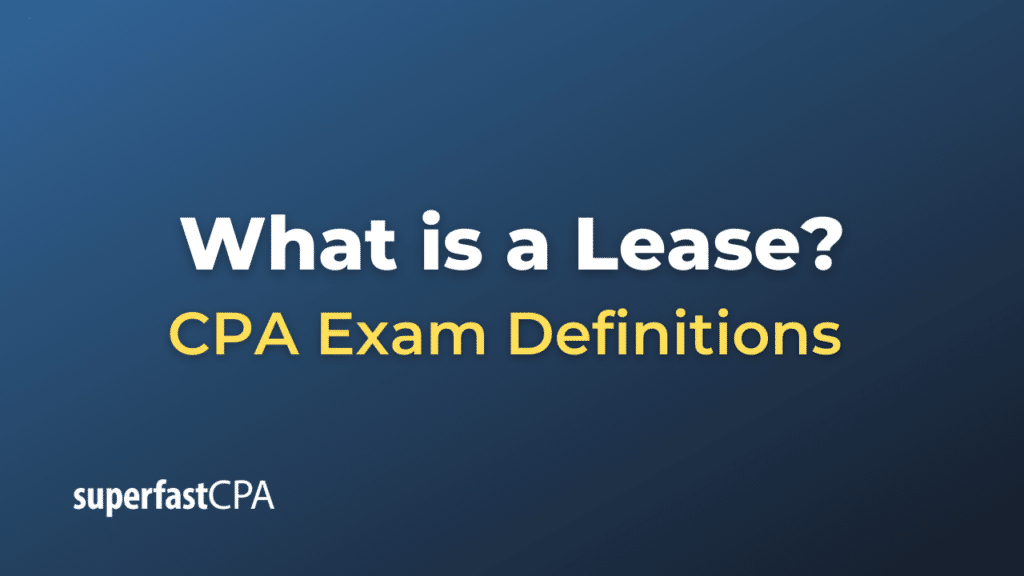Lease
A lease is a legal agreement or contract that allows one party (the lessee) to use and occupy a property owned by another party (the lessor) for a specified period of time in exchange for regular payments. The terms and conditions of the lease are outlined in the lease agreement.
There are many types of leases, but some of the most common include:
- Residential Lease: This is typically an agreement between a landlord (lessor) and a tenant (lessee) for the use of a residential property, such as an apartment or a house.
- Commercial Lease: This involves the leasing of commercial property, such as office buildings, retail spaces, warehouses, etc. The lessee is typically a business.
- Vehicle Lease: This is an agreement where a car dealership or leasing company (lessor) allows a customer (lessee) to use a vehicle for a specific period of time in exchange for regular payments.
- Equipment Lease: This is an agreement where a company or individual (lessee) rents equipment from another company (lessor) for a specific period of time.
Lease agreements typically specify the duration of the lease (the lease term), the amount of the regular payments (the lease payments or rent), and the responsibilities of both the lessor and the lessee. Leases can range from short-term (months or a few years) to long-term (many years or decades).
In accounting and finance, leases are also classified as either operating leases or capital (finance) leases, each with different implications for the balance sheet and income statement of the lessee.
Remember, the exact nature and details of a lease can vary greatly depending on jurisdiction, the type of asset being leased, and the specifics of the agreement between the lessor and lessee.
Example of a Lease
Let’s consider an example of a commercial lease:
Imagine a small startup business called TechCo that specializes in software development. The company has just grown out of its founder’s basement and needs a larger space to accommodate its expanding team.
TechCo finds an office space in a commercial building owned by a real estate company, OfficeSpaces Ltd. After negotiation, both parties agree to a lease agreement. According to the agreement:
- The lease term is for five years.
- TechCo will pay OfficeSpaces Ltd. $3,000 per month for the use of the office space.
- TechCo is responsible for paying for their utilities such as electricity and internet service.
- OfficeSpaces Ltd. is responsible for maintenance and repairs to the structural aspects of the building, such as the roof and elevators.
- The lease also specifies rules about modifications to the space, renewal options, and termination conditions.
This agreement allows TechCo to use the office space to operate its business, without having to purchase a property. They have the stability of a set location for five years, but also maintain the flexibility to move to a larger space if they outgrow the current office before the lease term is up.
On the other side, OfficeSpaces Ltd. earns a steady income from the property for the term of the lease. They retain ownership of the property and can lease it to another tenant after the end of TechCo’s lease term, or renew the lease agreement with TechCo.
This is a simplified example, but it captures the basic structure of a commercial lease. The exact terms and conditions can vary greatly based on the negotiation between the two parties.













